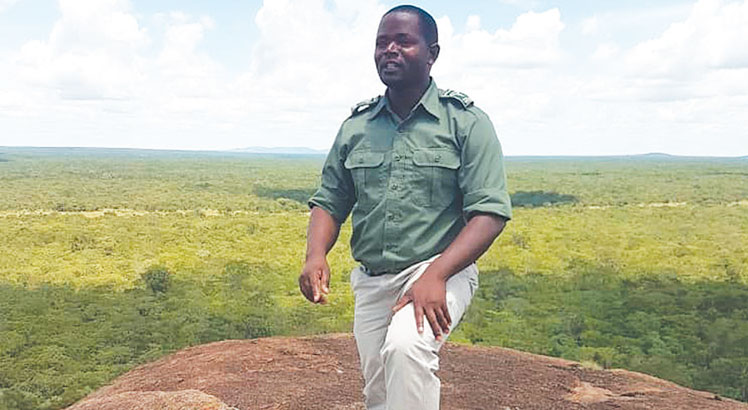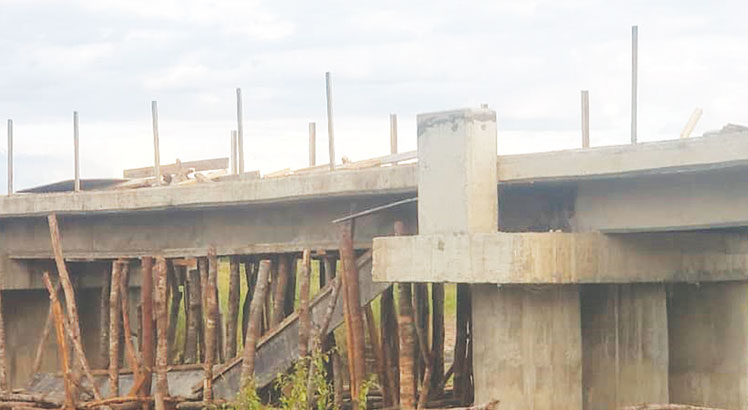When a distraught mother arrived at Monkey Bay Community Hospital with an unconscious child on her back in April, health workers didn’t know more were on the way.
Within a week, the second-busiest hospital in Mangochi District was inundated by malarial children from flooded communities along the southern shoreline of the swelling Lake Malawi.
“The lake has been rising for months, but the recent influx of malaria children from Nankhwali Camp near Cape Maclear awakened us to the public health concern,” says Miriam Banda, the nurse-in-charge of the hospital’s children’s ward.
She instantly put the boy on oxygen until he could breathe on his own.
A mother with a malaria-stricken child at Monkey Bay Community Hospital
The 120-bed hospital, constructed with funding from Iceland, was opened in 2005 to serve a fishing community of almost 52 200 along the southern tip of the country’s largest lake. It admits critical patients from nine health centres surrounded by more than 90 000 people.
They include Nankhwali, where more than 150 displaced families have taken shelter in a congested camp with limited aid since February.
“The malaria outbreak could worsen as the stagnant floodwaters become breeding grounds for mosquitoes that spread the disease,” says the nurse.
Locals in Mangochi recall seeing water bubbling from the ground in January and it was swamped by outflows from the rising lake as it swallowed its postcard beaches inch by inch.
The surging lake has flooded homes, businesses and crop fields along its shoreline and sole outlet—the Shire River—amid prolonged drought caused by the El Nino weather pattern. The irony follows months of heavy torrents in northern Malawi and south eastern highlands in Tanzania.
The swamps have created favourable conditions for disease outbreaks, including malaria which is transmitted by female anopheles mosquitoes.
Clinician-in-charge Thokozani Jizale fears the floods could wipe the declines in malaria three years after spraying insecticides that eliminate mosquitoes.
National Malaria Control Programme chief Dr Michael Kayange in 2021 credited indoor residual spray (IRS) with halving malaria infections in Mangochi, Salima and Mangochi. The disease kills three Malawians every day and accounts for 15 percent of all hospital admissions.
The government promotes the chemical war on mosquitoes alongside mass distribution of treated bednets and malaria vaccination in malaria hotspots, including the lakeshore and riverside floodplains.
“We expect a surge in malaria cases as mosquitoes are multiplying again. Currently, we are assessing the public health situation in communities along the lake,” says Jizale.
Madalitso Clinic Nutrition and Rehabilitation Centre clinician-in-charge Peter Wonderford says the facility’s six-bed ward is overwhelmed by children with malaria.
“Malaria cases dominate patients that fill the ward and we expect a dramatic rise in malaria unless we stop the outbreak at the source in the flooded zones where mosquitoes are multiplying,” he says.
Wonderford also warns that the floods could spark waterborne and sanitation-related disease outbreaks, including diarrhoea which fuel malnutrition and deaths in children under five.
Human waste, latrines, septic tanks, water pumps and taps are seen in floodwaters in affected zones.
District medical officer Dr Victor Kunfunda concurs: “From last year, we have seen a dramatic surge in malaria cases. Most likely, the floods have created dumpy conditions which breed mosquitoes.
We feel lucky that we don’t have cholera cases. We expected lots of them with the flooding.”
According to the National Water Resources Authority, the lake has been on the rise since 2010. The upsurge automatically raised floodgates at Liwonde Barrage to flush 957 cubic metres into the Shire, almost thrice the volume the river can safely handle per second.
Locals say government response has delayed and remains scanty.
“This is a time bomb which calls for swift action from government and its partners,” says health rights activist Jobe.
The call echoes in the Shire Valley.
“Mosquito bites and malaria are increasing as they multiply in our flooded crop fields. We need bed nets, but we risk catching malaria before we go to sleep,” says group village head Mtondeza of Chikwawa.
The post As Lake Malawi rises, malaria bites harder first appeared on Nation Online.
The post As Lake Malawi rises, malaria bites harder appeared first on Nation Online.
 Moni Malawi
Moni Malawi 

